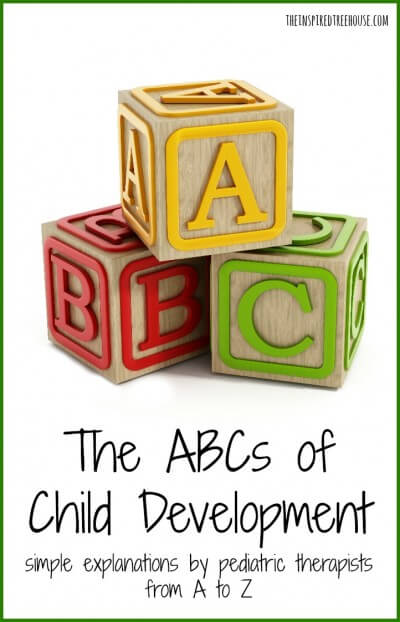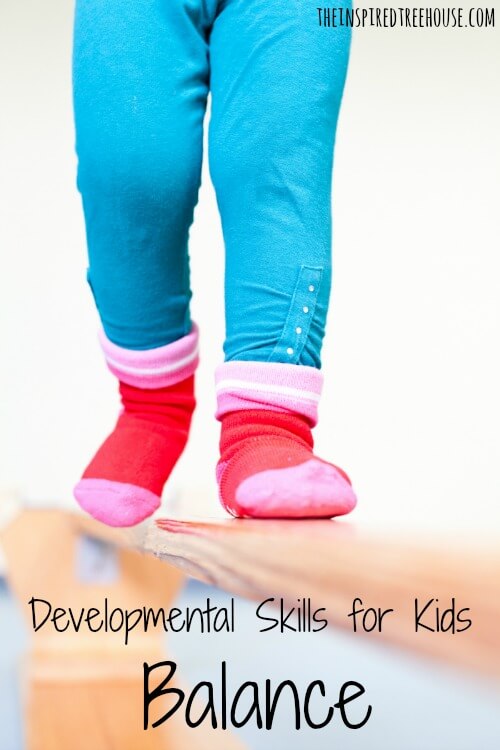Balance, the ability to hold your body upright and steady without falling down, is as important in adulthood as it is in childhood.
*This post contains affiliate links. Read more here.
Core strength is essential for balance. Kids need a strong middle to be able to maintain a balanced posture in any position for a prolonged amount of time.
Kids begin to work on balance as babies during tummy time as they shift their weight to one side to reach forward with the opposite arm. If that balance isn’t quite there…..whoa….they roll right over and are usually quite surprised when they do! As they grow, balance comes into play often as babies learn to sit, stand, pick things up from the floor and walk.
As your child grows and develops, balance becomes more and more important in ways that are obvious — sports, physical education class, and walking across that Slack Line at their friend’s house.
But, balance is also important for things that aren’t so obvious. Your child needs balance to maintain appropriate posture in his chair at school, to carry her lunch tray from the cafeteria line to the table, and even to manage those crazy bus stairs that are all different heights while carrying a backpack full of supplies.
Check out these great balance activities for kids!
And try this awesome Family Balance Challenge from SPIDERfit Kids!

Sign up to receive our newsletter, a weekly roundup of our favorite posts and other great finds from around the web delivered right to your inbox!

At The Inspired Treehouse, we believe that information about developmental skills and child development should be accessible to everyone, not just medical professionals. You won’t find a lot of complicated lingo here – we prefer breaking things down into terms that are a little less intimidating. That’s why we’re bringing you this awesome series: The ABCs of Child Development!
Over the next few months, we’ll be making our way through the alphabet, assigning the letters to different developmental skills. From gross motor to fine motor to sensory and more…when it comes to developmental terminology (and easy-to-understand definitions), you’ll find everything you’re looking for all in one place!
Latest posts by Lauren Drobnjak (see all)
- End of the Year Gifts for Therapists - April 14, 2024
- Playful Therapy Posters to Spruce Up Your Room - March 30, 2024
- How to Help a Baby Crawl & Creative Crawling Patterns We See in Therapy - March 19, 2024


[…] them to use their imaginations. Movement stories are great for working on motor planning, balance, coordination, problem solving, concentration, self-regulation, core strength and body awareness […]